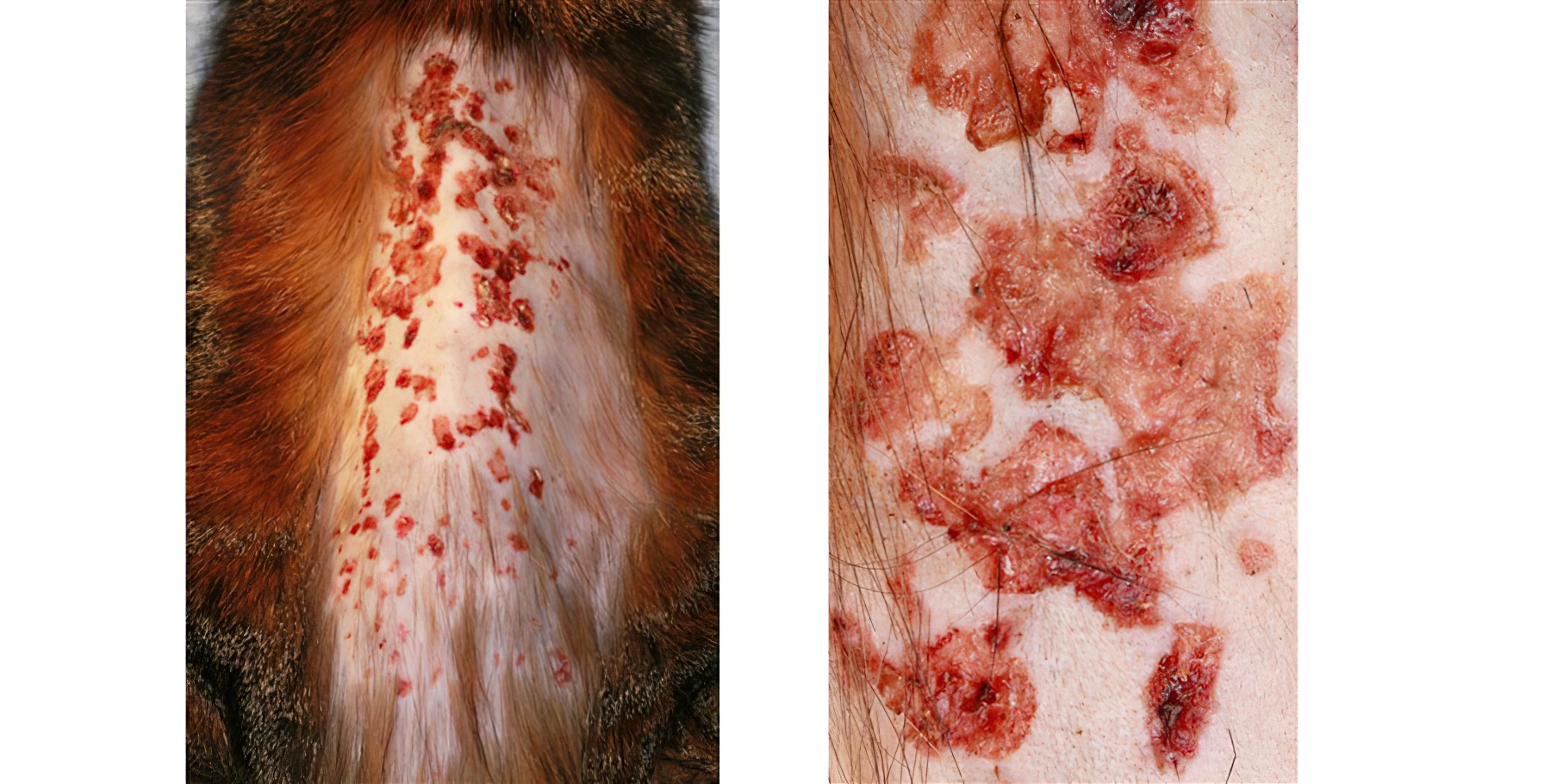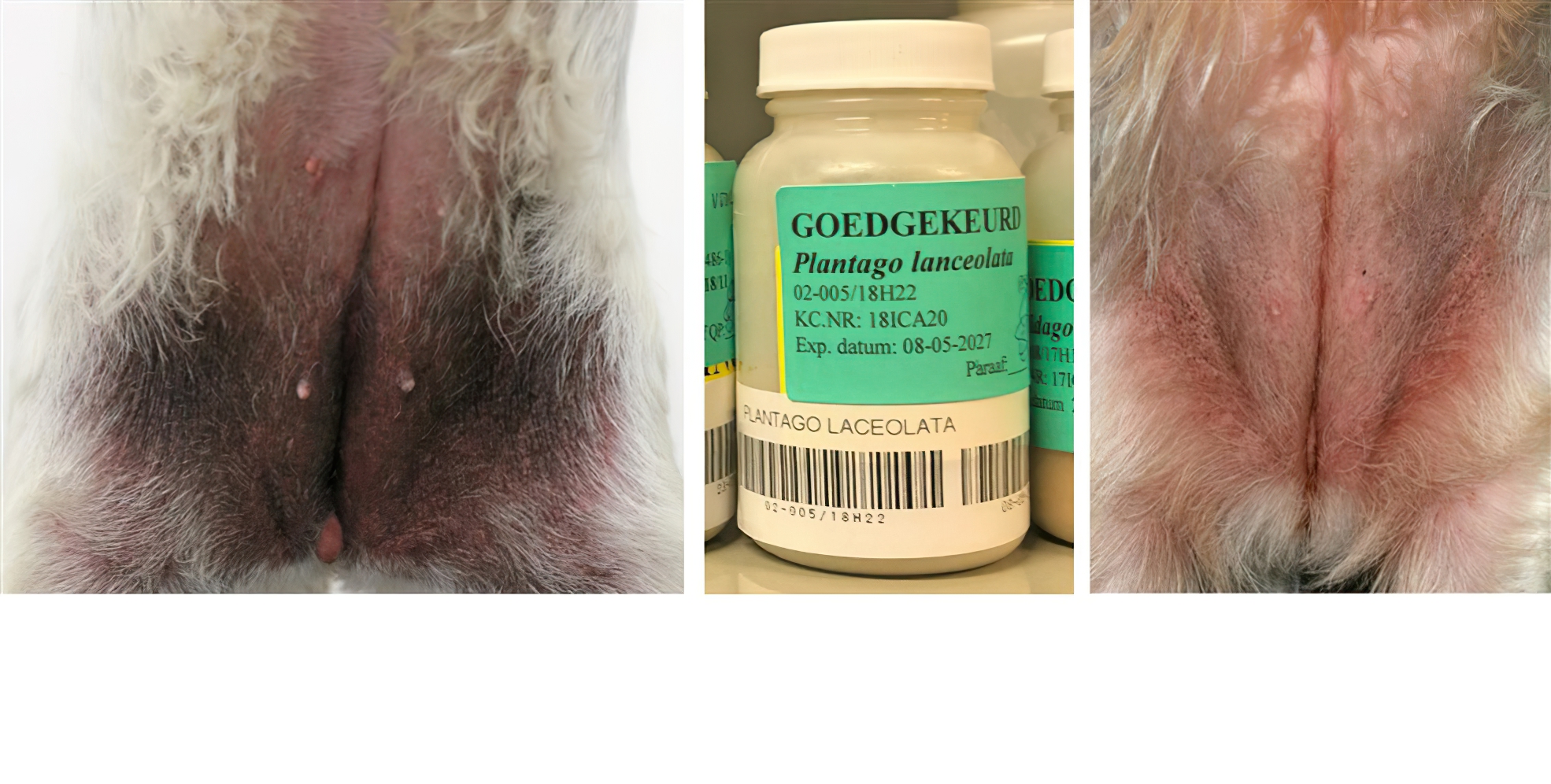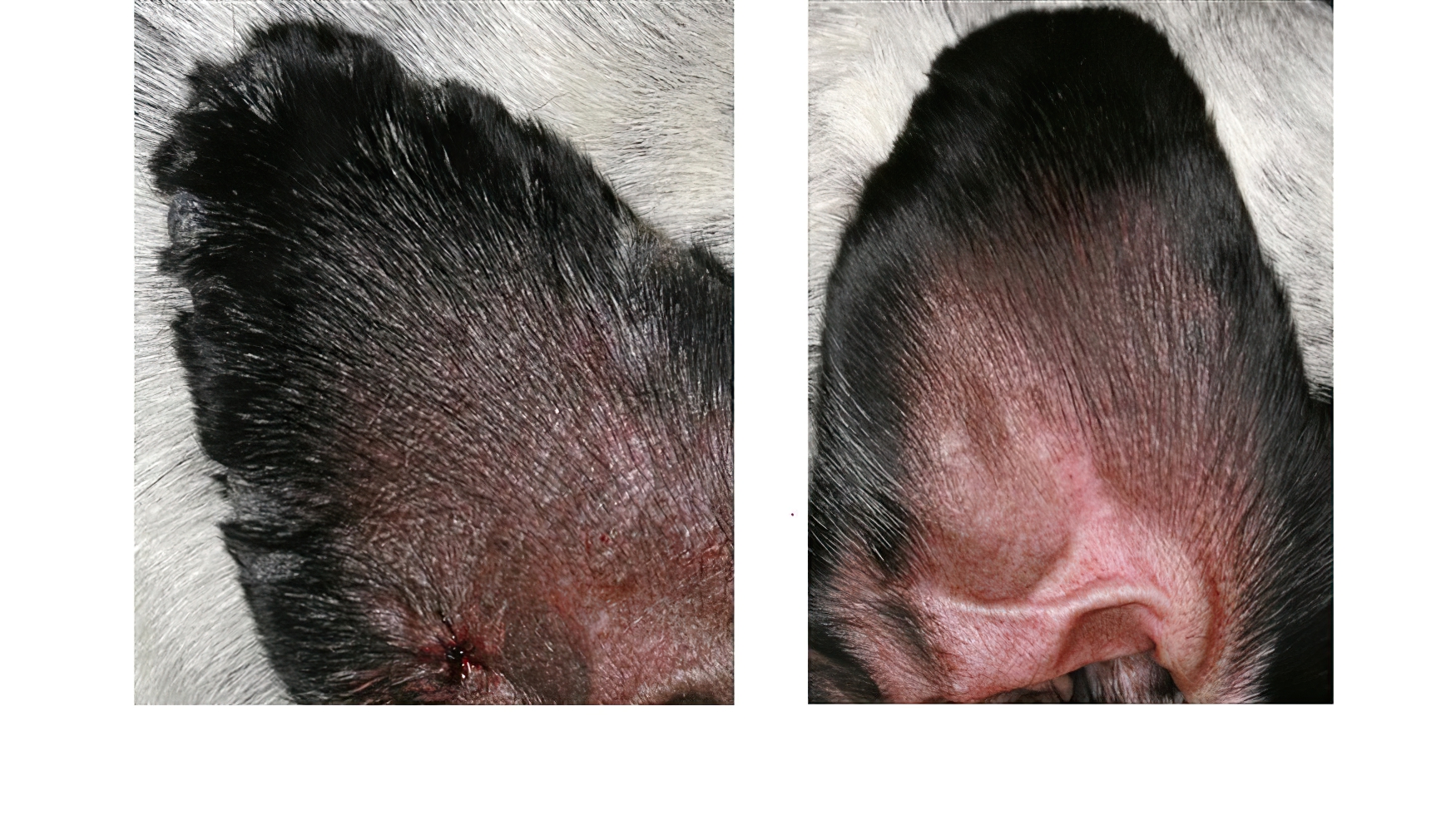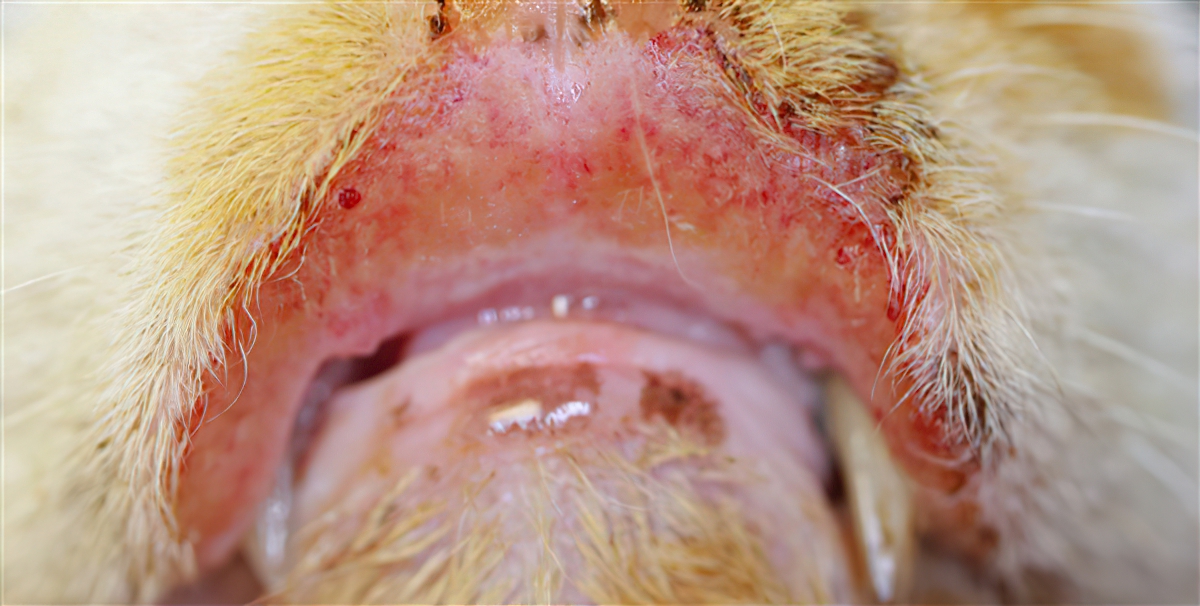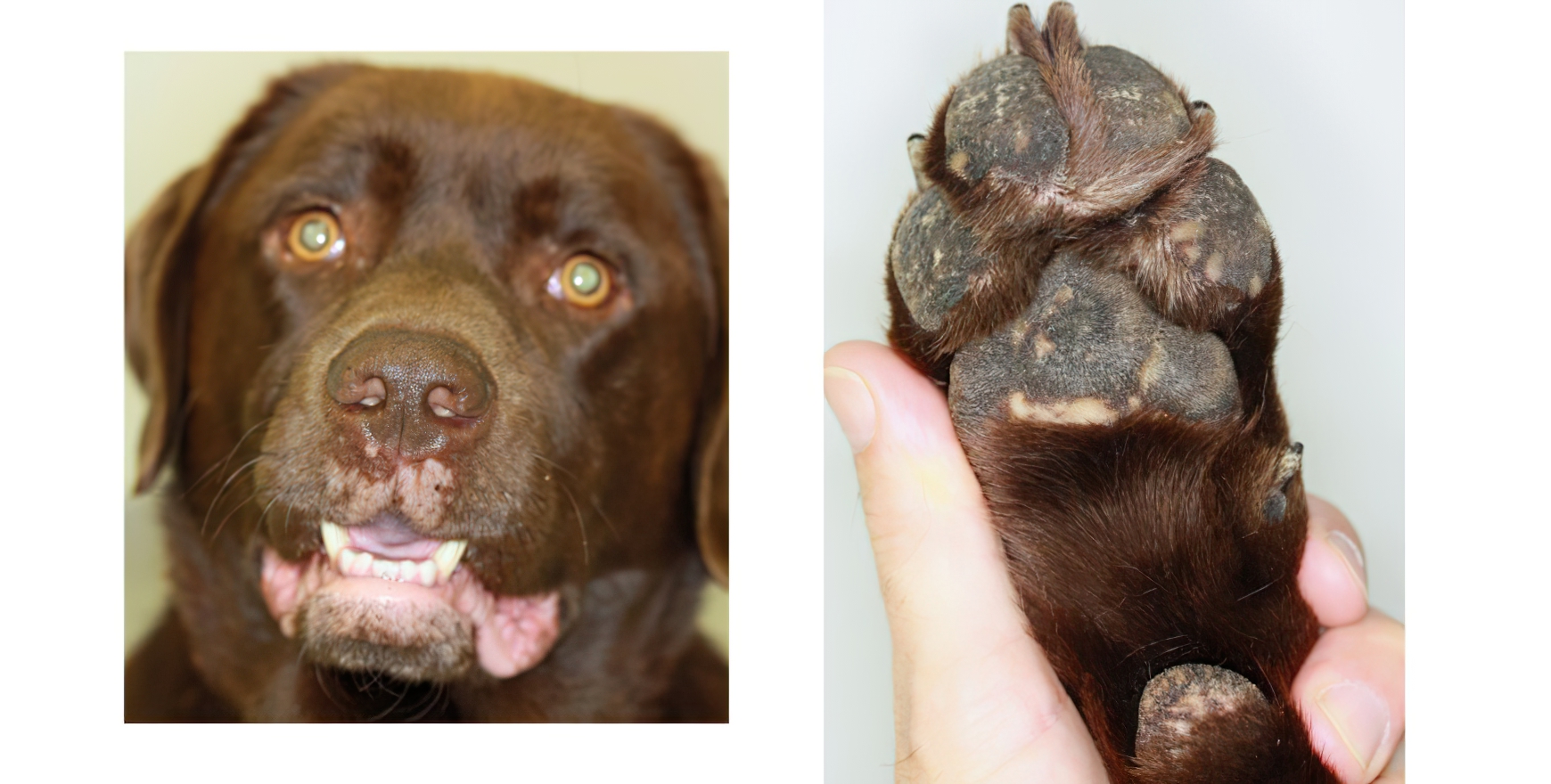Diet Trial Phases (Exclusion-Provocation)
In order to document the response to the dietary manipulation and avoid coincidences it is essential that complete exclusion is followed by provocation:
- Exclusion: the minimum duration is 2 months once the transition (5-7 days) onto the exclusion diet is complete. Slow transition in order to avoid any digestive upsets and to ensure the diet is accepted.
- Re-challenge: slow transition (5-7 days) back to previous diet and observe closely for recurrence of clinical signs within 7-14 days. Reappearance of the signs suggests a diet-related dermatitis is present.
- Rescue: transfer slowly back onto the exclusion diet again – if it leads to a resolution of signs, without the need for further therapy, then a dietary intolerance has been diagnosed.
- Search: ideally individual protein sources from the previous diet(s) can then be added in rotation every 2 weeks in order to provoke another relapse thereby discovering the offending protein(s).
- Maintenance: fixed formula complete diet avoiding specified protein(s). Clients may wish to feed a raw meat based diet despite my, or other veterinarians advice, so I will then recommend that they seek a paid E-consultation with a certified Veterinary Nutritionist through BalanceIT.com. The hypoallergenic diet can then be re-balanced to provide the optimal ingredients to aid with allergic skin disease.
Olivry et al. BMC Veterinary Research (2015) 11:225 concluded that ‘for diagnosing CAFRs in more than 90 % of dogs and cats, elimination diet trials should last at least 8 weeks’: https://www.biomedcentral.com/collections/catsfoodreactions
Some useful decisions tree for dogs RC Canine Diet Decisions Tree and cats RC Feline Diet Decisions Tree

